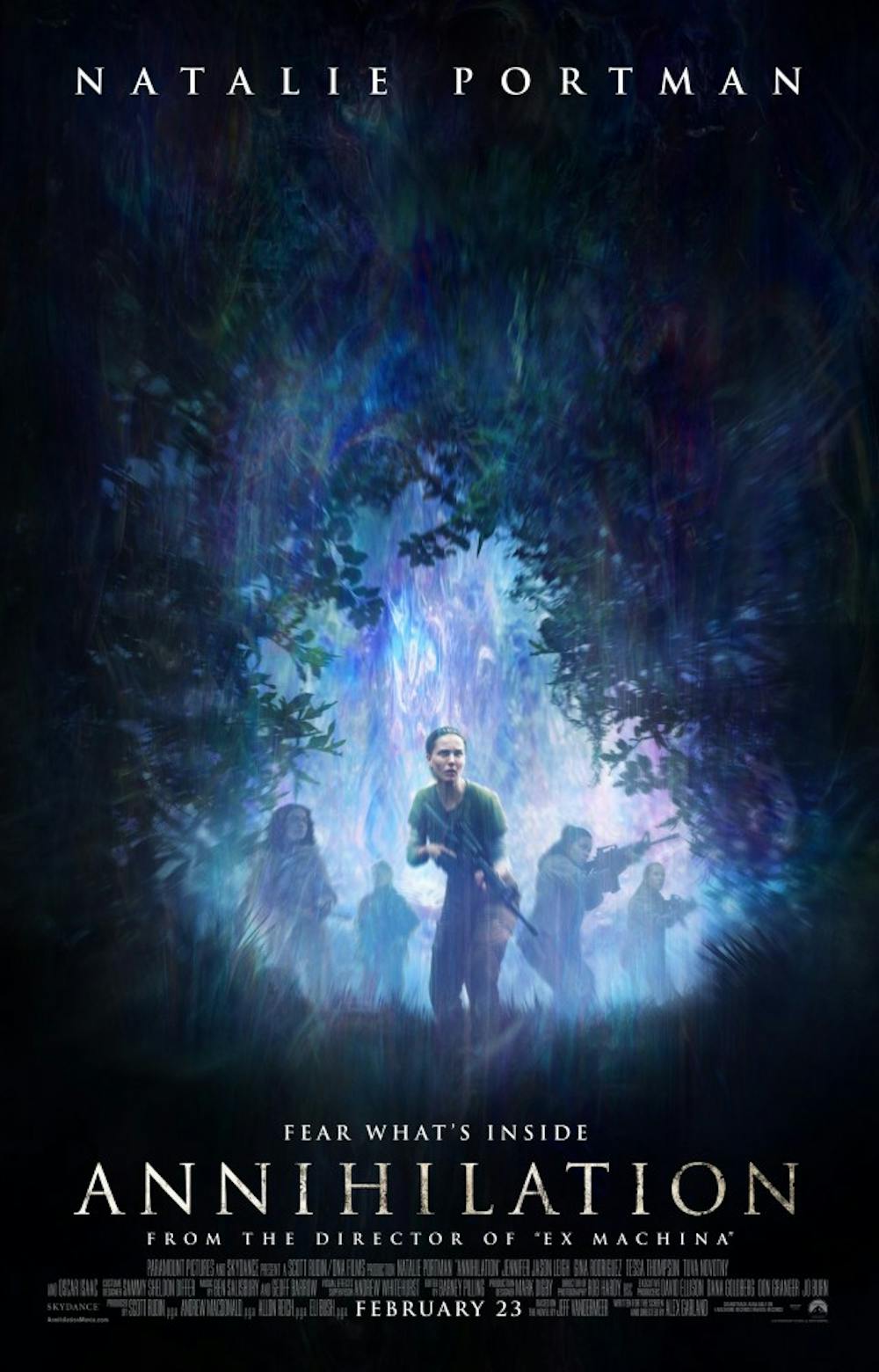Unlike what seems to be the majority, I was not at all impressed by director Alex Garland’s previous film, “Ex Machina.” It’s a trite, boring piece regurgitating the dangers of AI — and the humans that make it, ooh — for the umpteenth time. I just didn’t get it I suppose.
Regardless, I went in giving “Annihilation” and Garland another fair chance.
Natalie Portman leads as Lena — a cellular biologist who, after the mysterious reemergence and near-death of her missing husband Kane (Oscar Isaac), joins an investigative team to explore a spreading alien anomaly dubbed “the Shimmer” in hopes of curing him.
Kane, it is revealed, was previously sent on a suicidal expedition into the Shimmer, and things start shaping up similarly for Lena, as her team progresses deeper and deeper into the contaminated swampland.
Pacing a film slowly is a tricky challenge that can occasionally pay off, such as in “Blade Runner 2049,” one of last year’s best films. It seems that Garland has a penchant for slower filmmaking, with “Annihilation” suffering from the lethargic and meaningless pace plaguing “Ex Machina.” There’s no build-up for most of the movie, which is written as a survival film with elements of action and horror.
The concept sounds interesting enough on paper, but its execution is so hollow there’s nothing to invest in the film’s endless meandering. The plot is basic, occasionally visually stimulating, but mostly boring. The Shimmer features captivating wildlife mutating into bubble-gum-like fungus and some pretty cool creatures, but that’s about all I could latch onto for two hours.
The cast faces another similar problem — Jennifer Jason Leigh, Gina Rodriguez, Tessa Thompson and Natalie Portman are cinematic heavy-hitters, but their characters are frustratingly wooden. There’s no substance to anyone, save Rodriguez, whose role amounts to going mentally insane for no real reason. Portman’s Lena is probably the least bland character in the cast, thanks to her longer screen time and semi-development in flashbacks but not by much.
Some frequent surges in spotty dialogue, their awkward delivery, and many overly showy shots that can be interesting at times but often just stick out, also got especially grating. The mismatched musical score leaning heavily on mellow guitar patterns and eventually generic edgy blat music didn’t help the experience either.
I had given up two-thirds into my screening of “Annihilation” — partly from no sense of investment on the movie’s part and partly from how much I’ve hated the film’s stupid, stupid name for months prior — when suddenly things clicked.
There’s a revelation featuring Lena’s past that brings much of the film into narrative and thematic context, and the film goes full sci-fi bonkers from there.
I loved the third act of “Annihilation.” It’s as visually captivating as it is thought-provoking, and it somewhat saved my final impressions of the film. Many of Garland’s creative choices suddenly made sense, showing a surprising degree of cohesiveness in vision. He should at least be applauded for such tight theoretical direction.
While so much of “Annihilation” is such a hard grind to get through it’s retrospectively tough to judge how much of the film ultimately works. I maintain that the trek through the Shimmer is a worthless slog which is unfortunate, given that it takes up the majority of the runtime, but the endgame is absolutely phenomenal.
Get content from The Daily Lobo delivered to your inbox
Somewhere in “Annihilation” is a great film stretched too long to comply with the rules of the book it’s based on. A second viewing wouldn’t be a terrible idea I suppose.
B
Hector Valverde is a freelance reporter at the Daily Lobo. He primarily writes movie reviews. He can be contacted at culture@dailylobo.com, or on Twitter @hpvalverde.






